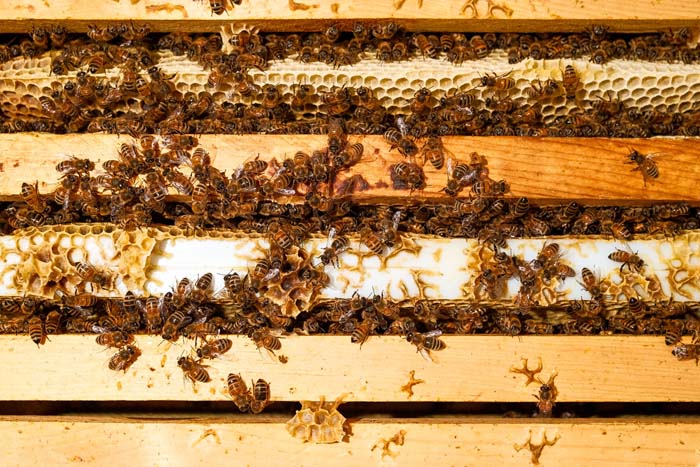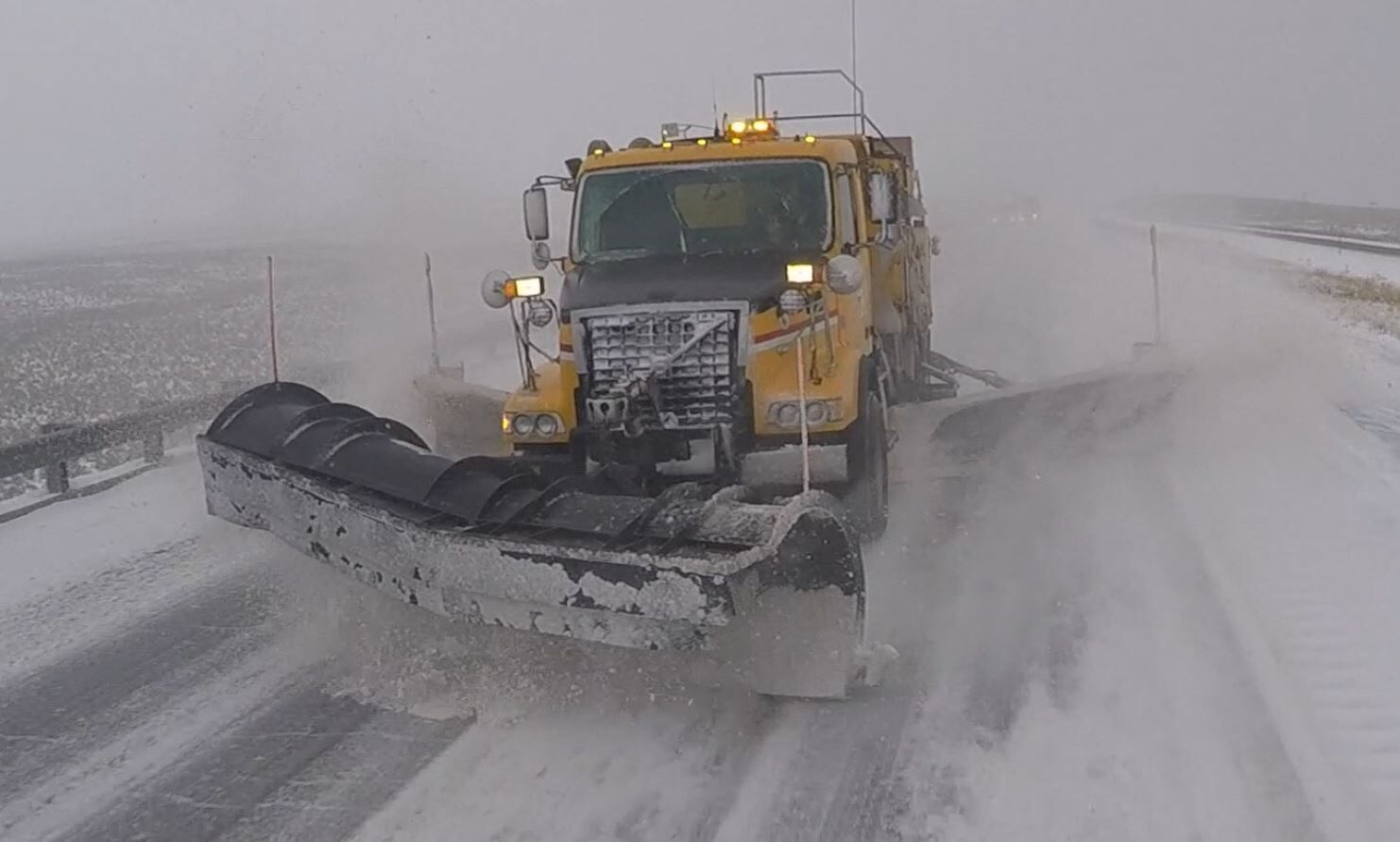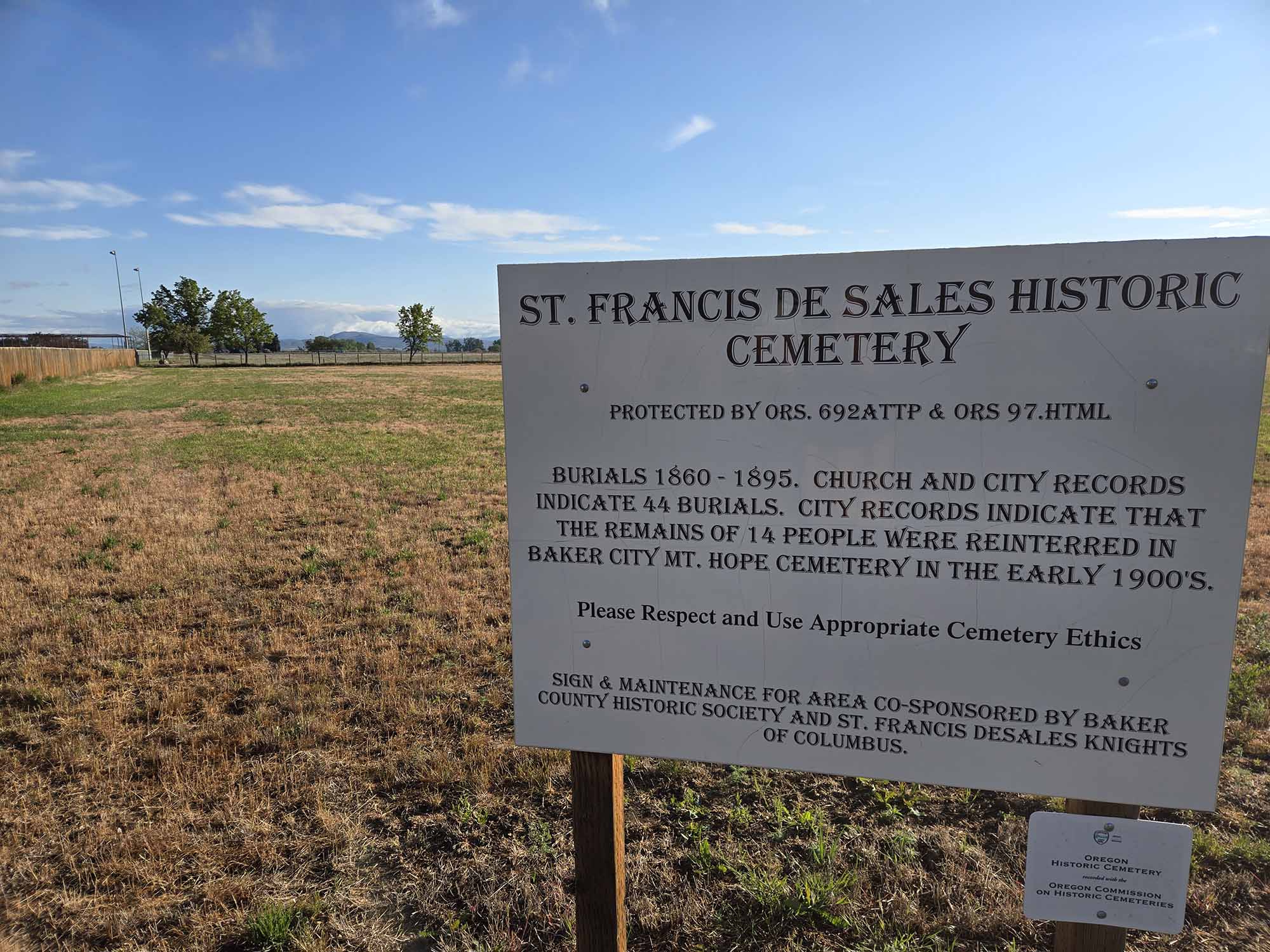La Grande beekeeper selected for statewide accelerator program
Published 7:00 am Wednesday, June 30, 2021

- Honey bees buzz about their hive in Cove on Tuesday, June 22, 2021. Caroline Barnes, a local beekeeper, has been a caretaker of nine hives throughout Union County, and is using the excess honey produced by the bees to start her business, Circle A Bees, using knowledge gained from the business accelerator Farm2Food.
LA GRANDE — Most people see honey simply as a sweet add-on to their afternoon tea or a spread on their toast. But for Caroline Barnes, honey is more than just a packaged syrup on market shelves — it’s a way of connecting with nature and finding the beauty in our everyday environments.
Trending
“There’s nectar of 20,000 flowers in a teaspoon of honey, and that’s just the product of the amazing tasks that bees do for us,” Barnes said. “It’s such a beautiful product, and uniquely flavored, that’s what really got me interested in it.”
Barnes, who moved to La Grande in 2006, has been beekeeping for 17 years. Her business, Circle A Bees, is mostly a one-person operation, but the bees do most of the work. In 2020, Barnes accumulated a total of 60 gallons of honey.
In March, Barnes was one of 10 Oregon women selected for the first Farm2Food accelerator program, sponsored by the National Association of State Departments of Agriculture Foundation.
Trending
The purpose of the accelerator is to help women entrepreneurs and farmers gain skills in marketing, product development, packaging and pricing via a series of virtual workshops. The program, facilitated by the Oregon Department of Agriculture and funded by the 2019 Oregon Speciality Crop Block Grant Program, began in May and will end in September.
“I feel very honored to have been selected to be a part of this program,” Barnes said. “They put a lot into creating the program and I’m really grateful. It’s a lot of work, but it’s really great to hear the stories of the other women who are involved.”
Barnes was the only participant selected from Eastern Oregon. The program involves watching videos, reading articles and completing interactive activities and assignments. There are four modules in the program, which take anywhere from three to six weeks to complete.
According to NASDA, U.S. farmers are expecting $522.5 million in crop losses due to COVID-19. The Farm2Food accelerator program was specifically designed to help female farmers who face these losses.
“Women farmers, who typically have small-scale farms, could be at risk of going out of business if they cannot adapt to the new conditions of the pandemic,” NASDA’s website states. “We are helping women farmers become more resilient during this crisis through diversifying the products they sell and helping them explore new markets.”
Barnes was first drawn to beekeeping through her father, who maintained several hives into his 90s.
“I was intrigued by the bees and their abilities to maintain hives and how they communicate and just all the things they do,” she said.
However, Barnes, who hails from Colorado, wasn’t always interested in beekeeping. She obtained a bachelor’s degree in civil engineering from Colorado State University in 1983, followed by a few years in Alaska studying arctic engineering. Several years later Barnes moved to Bainbridge Island, Washington, and earned a master’s degree in water resource engineering from the University of Washington in Seattle.
It was in Washington that Barnes discovered her passion for beekeeping.
“My dad was scaling down his hives when I was in Washington, and he gave me some of his hive bodies, and that’s what kind of motivated me to get started,” Barnes explained. “And it was purely a hobby. I only extracted enough honey for our own use.”
After 10 years in Washington working as an open channel hydraulic engineer, Barnes grew tired of the growing population and wanted to move to somewhere she could ride her horses. While visiting Oregon, she stopped in La Grande and noticed its resemblance to her hometown in Colorado, which inspired her to move to the area.
When she moved to La Grande and began a job as a hydraulics engineer for the Oregon Department of Transportation, Barnes signed up for the Oregon Master Beekeeper Program at Oregon State University, and she never looked back.
“That program really kicked me into expanding into more than just a couple of hives,” Barnes recalled. “I learned a bunch, and when I decided to leave work a little early, I got more into it and then I did some traveling to Slovenia for a beekeeping excursion.”
According to Barnes, the trip to Slovenia completely changed the way she viewed beekeeping. While there, she toured local beekeepers’ operations and saw them in practice.
“I came back from Slovenia really inspired,” she said. “The beekeepers there are phenomenal, and they might be small, but their hearts are really in it.”
Now, two years after that trip, Barnes has expanded Circle A Bees to 12 beehives, each of which starts with one queen bee and nearly 25,000 worker bees. She said that the Farm2Food accelerator program has given her new ideas for expanding her business and working with other beekeepers.
“Small beekeepers aren’t making any money because the prices don’t reflect the amount of work that goes into it,” Barnes said. “I get excited about other beekeepers on a similar scale, and I’d like to explore creating a co-op for beekeepers that are producing honey and not selling to large corporations.”
However, Barnes has learned that running your own beekeeping business is no easy task. Every spring, she works to replace queens, clean out hives, move the hives to different locations, and then work to feed them. For most of the summer, she performs regular inspections to ensure the bees are being fed and producing the honey.
In the fall, she extracts and packages the honey.
She works mainly by herself, though she hopes to hire someone long-term next year.
But to Barnes, beekeeping isn’t about money — it’s about the integrity of her product and of the process behind it.
“I don’t envision making much money off of it,” she said. “It’s all about respecting the environment, trying to reduce impacts and supporting good practices. Beekeeping is a lifetime experience of learning. The more you know, the more you realize you don’t know.”









